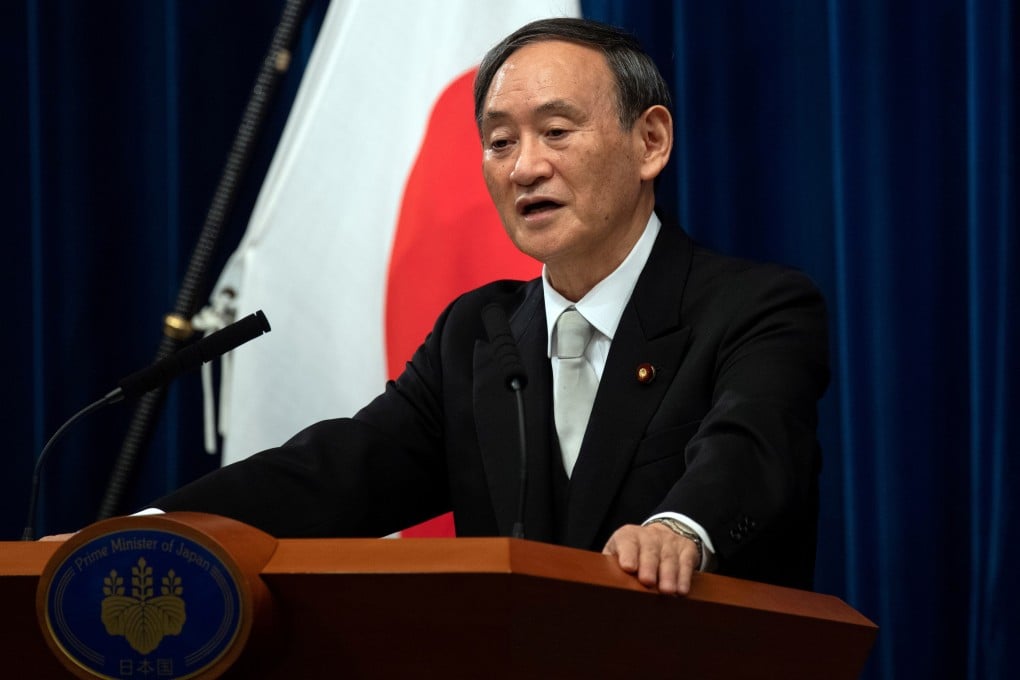China-Japan relations: new Prime Minister Yoshihide Suga agrees to work with Xi Jinping to boost stability
- Call on Friday night was the first between leaders of Asian powers since the beginning of the Covid-19 pandemic
- Suga says he wants to ‘fulfil his responsibility’ by putting relations between the two countries onto an even keel

Japan’s new Prime Minister Yoshihide Suga said on Friday he had agreed with Chinese President Xi Jinping to pursue high-level contacts in a bid to promote regional and international stability.
“Stable relations are important not just for our countries but for the region and the international community. I want to fulfil that responsibility,” Suga said in comments aired by public broadcaster NHK after he spoke with Xi on the telephone.
But Suga also told reporters that the two did not discuss plans for Xi to visit Japan as a state guest. The trip had been planned for spring this year but was postponed indefinitely due to the coronavirus pandemic.
The phone conversation took place a week after Suga’s appointment, following the resignation of Shinzo Abe for medical reasons.
Suga has also held phone conversations with Australian Prime Minister Scott Morrison, US President Donald Trump, British Prime Minister Boris Johnson, South Korean President Moon Jae-in and Indian Prime Minister Narendra Modi.